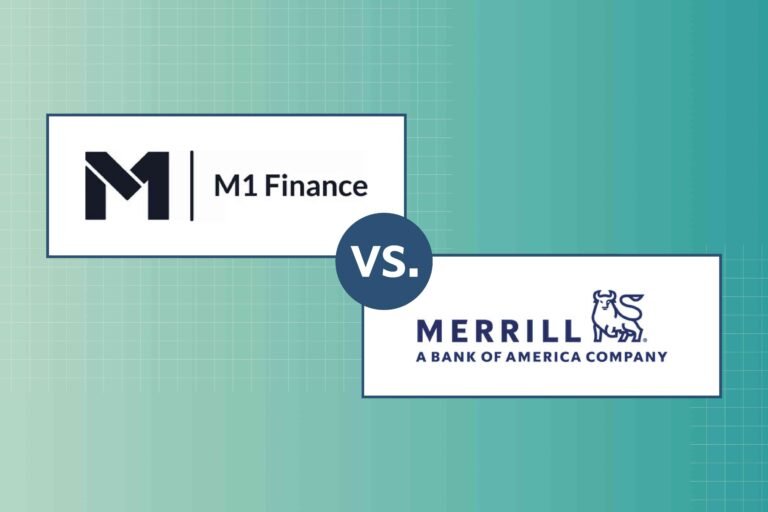How Currency Fluctuations Affect the Economy
Fact checked by Michael Logan
Currency fluctuations can have wide-ranging impacts on the economy. They can affect commerce, economic growth, capital flows, inflation, or interest rates. The strength or weakness of the underlying economy typically determines a currency’s exchange rate.
Key Takeaways
- Investors can hedge their foreign currency risk via instruments such as futures, forwards, and options.
- Investors can benefit from a weak dollar by investing in overseas equities.
- The foreign exchange market (FOREX) is the most actively traded in the world.
Exchange Rates
Individuals might follow exchange rates when traveling to a foreign country, making import payments, or collecting overseas remittances. The value of the domestic currency in the foreign exchange market is a key consideration for central banks when they set monetary policy.
A strong currency can exert a significant drag on the economy over the long term, as entire industries are rendered noncompetitive and thousands of jobs are lost. While some might prefer a strong currency, a weak currency can result in more economic benefits.
Directly or indirectly, currency levels affect the interest rates consumers pay on mortgages, the returns on their investment portfolios, the price of groceries, and even their job prospects.
Trade
In general, a weaker currency makes imports more expensive, while stimulating exports by making them cheaper for overseas customers to buy. A weak or strong currency can contribute to a nation’s trade deficit or trade surplus over time.
Assume a U.S. exporter sells widgets at $10 each to a buyer in Europe. The exchange rate is €1=$1.25. Therefore, the cost to the European buyer is €8 per widget. If the dollar weakens, assume the exchange rate is €1 = $1.35. The buyer will want to negotiate a better price, and the seller can afford to give them a break while still clearing at least $10 per widget. Even if the new price is €7.50 per widget, which is a 6.25% discount from the buyer’s perspective, the cost is $10.13 at the current exchange rate.
A weak U.S. dollar allows the export business to remain competitive in international markets. Conversely, a stronger currency can reduce export competitiveness and make imports cheaper, which can cause the trade deficit to widen further, eventually weakening the currency in a self-adjusting mechanism.
GDP and Currency
The basic formula for an economy’s Gross Domestic Product (GDP) is:
GDP=C+I+G+(X−M)where:C= Consumption or consumer spending, the biggest component of an economyI=Capital investment by businesses and householdsG=Government spending(X−M)=Exports−Imports, or net exports
From this equation, it is clear that the higher the value of net exports, the higher a nation’s GDP. Net exports have an inverse correlation with the strength of the domestic currency.
Capital Flows
Foreign capital tends to flow into countries that have strong governments, dynamic economies, and stable currencies. A nation needs a relatively stable currency to attract capital from foreign investors. Otherwise, the prospect of exchange-rate losses inflicted by currency depreciation may deter overseas investors.
There are two types of capital flows: foreign direct investment (FDI), in which foreign investors take stakes in existing companies or build new facilities in the recipient market; and foreign portfolio investment, in which foreign investors buy, sell, and trade securities in the recipient market.
Governments may prefer FDI to foreign portfolio investments because the latter is hot money that can leave the country quickly when conditions weaken.
Important
A devalued currency can result in “imported” inflation for countries that are substantial importers, such as a 20% decline in the domestic currency that results in imports costing 25% more.
Interest Rates
Exchange rates are a key consideration for most central banks when setting monetary policy. A strong domestic currency drags an economy, achieving the same result as a tighter monetary policy, like higher interest rates. Further tightening of policy at a time when the domestic currency is already strong may exacerbate the problem by attracting hot money from foreign investors seeking higher-yielding investments, which would further strengthen the domestic currency.
Note
The foreign exchange (FOREX) market is the most actively traded in the world, with more than $6 trillion traded daily.
Currency Crisis Examples
Adverse currency moves caused the Asian Financial Crisis, which began with the devaluation of the Thai baht in the summer of 1997. The devaluation occurred after the baht came under intense speculative attack, forcing Thailand’s central bank to abandon its peg to the dollar and float the currency. This currency contagion spread to neighboring countries of Indonesia, Malaysia, and South Korea.
The Japanese yen was one of the most volatile currencies between 2008 and 2013. Because of Japan’s policy of near-zero-bound interest rates, traders favored the yen for carry trades, in which they borrowed yen for next to nothing and invested in higher-yielding overseas assets. But as the global credit crunch intensified in 2008, the yen began appreciating sharply as panicked investors bought the currency in droves to repay yen-denominated loans.
As a result, the yen appreciated by more than 25% against the U.S. dollar in the five months to January 2009. In 2013, Prime Minister Shinzo Abe unveiled monetary and fiscal stimulus plans, nicknamed “Abenomics,” leading to a 16% plunge in the yen within the first five months of the year.
How Investors Hedge
- Invest Overseas: U.S. investors may foresee a weakening dollar and invest in overseas markets because foreign currency gains boost returns.
- Invest in U.S. Multinationals: Large U.S. multinational companies derive substantial revenues and earnings from foreign countries. Earnings of U.S. multinationals are boosted by the weaker dollar, which should translate into higher stock prices when the greenback is weak.
- Limit Borrowing in Low-Interest Foreign Currencies: Investors should avoid borrowing in a foreign currency if it is liable to appreciate and they do not understand or cannot hedge the exchange risk.
- Hedge Risk: Adverse currency moves can significantly impact investor finances, especially if they have substantial forex exposure. Investors might choose currency futures, currency forwards, currency options, and exchange-traded funds.
What Causes Currency Fluctuations?
Currency fluctuations are caused by changes in the supply and demand. When a specific currency is in demand, its value relative to other currencies may rise. When it is not in demand—due to domestic economic downturns, for instance—then its value will fall relative to others.
What Are the Most Commonly Traded Currency Pairs?
The EUR/USD (Euro to U.S. Dollar) and the USD/JPY (U.S. Dollar to Japanese Yen) are the most traded currency pairs.
What Is the Strongest Currency in the World?
The Kuwaiti dinar is one of the strongest currencies in the world, due to Kuwait’s stable economy.
The Bottom Line
Currency moves can have a wide-ranging impact on global and domestic economies. When the dollar is weak, investors can take advantage by investing overseas or in U.S. multinationals. Because currency moves can be a potent risk when one has a large forex exposure, it may be best to hedge this risk through available hedging instruments.




